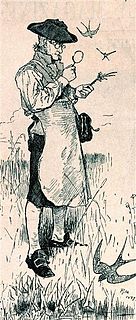See also
| | This disambiguation page lists articles about people with the same name. If an internal link led you here, you may wish to change the link to point directly to the intended article. |
John Horne (1848–1928) was a Scottish geologist.
John Horne is also the name of:
| | This disambiguation page lists articles about people with the same name. If an internal link led you here, you may wish to change the link to point directly to the intended article. |

1812 (MDCCCXII) was a leap year starting on Wednesday of the Gregorian calendar and a leap year starting on Monday of the Julian calendar, the 1812th year of the Common Era (CE) and Anno Domini (AD) designations, the 812th year of the 2nd millennium, the 12th year of the 19th century, and the 3rd year of the 1810s decade. As of the start of 1812, the Gregorian calendar was 12 days ahead of the Julian calendar, which remained in localized use until 1923.
1704 (MDCCIV) was a leap year starting on Tuesday of the Gregorian calendar and a leap year starting on Saturday of the Julian calendar, the 1704th year of the Common Era (CE) and Anno Domini (AD) designations, the 704th year of the 2nd millennium, the 4th year of the 18th century, and the 5th year of the 1700s decade. As of the start of 1704, the Gregorian calendar was 11 days ahead of the Julian calendar, which remained in localized use until 1923.
Round the Horne is a BBC Radio comedy programme starring Kenneth Horne, first transmitted in four series of weekly episodes from 1965 until 1968. The show was created by Barry Took and Marty Feldman, who wrote the first three series. The fourth was written by Took, Johnnie Mortimer, Brian Cooke and Donald Webster.

Lena Mary Calhoun Horne was an American singer, dancer, actress, and civil rights activist. Horne's career spanned over 70 years, appearing in film, television, and theater. Horne joined the chorus of the Cotton Club at the age of 16 and became a nightclub performer before moving to Hollywood.

John Horne Tooke, known as John Horne until 1782 when he added the surname of his friend William Tooke to his own, was an English clergyman, politician, and philologist.

John Bartram was an early Anglo-American colonial botanist, horticulturist, and explorer, based in Philadelphia, Pennsylvania, for most of his career. Swedish botanist and taxonomist Carl Linnaeus said he was the "greatest natural botanist in the world."

Philip Miller FRS was an English botanist of Scottish descent.
Robert Brown may refer to:

George Horne was an English churchman, academic, writer, and university administrator.
John Green may refer to:
Sir Alistair Allan Horne was a British journalist, biographer and historian of Europe, especially of 19th and 20th century France. He wrote more than 20 books on travel, history, and biography.

Bartram's Garden is a historic garden and arboretum in Philadelphia, Pennsylvania. Founded in 1728 by botanist John Bartram (1699–1777), it is the oldest surviving botanical garden in North America. Covering 46 acres (19 ha) with an 8-acre (3.2 ha) arboretum, the garden is near the intersection of 54th Street and Lindbergh Boulevard on the west bank of the Schuylkill River.

Robert Horne was an English churchman, and a leading reforming Protestant. One of the Marian exiles, he was subsequently bishop of Winchester from 1560 to 1580.
John Horne FLS (1835–1905) was a Scottish botanist. He served as director of the Botanic Gardens of Pamplemousses, Mauritius.
Horne is a surname. Notable people with the surname include:
The Ven. Melville Horne Scott (1827–1898) was Archdeacon of Stafford from 1888 until his death.
Michael Rex Horne OBE FREng, FRS was an English structural engineer, scientist and academic who pioneered the theory of the Plastic Design of Structures.